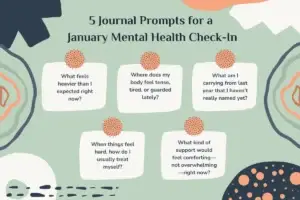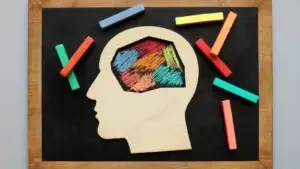Depression, a complex mental health condition affecting millions worldwide, manifests in various forms and intensities, impacting every aspect of daily life. However, amidst the struggles, there is hope—therapy offers a beacon of light for those navigating the turbulent seas of depression. In this comprehensive guide, we delve into the realm of depression therapy, offering insights, strategies, and support for managing its daunting symptoms. From the depths of despair to the pursuit of healing, the journey through depression is both personal and profound. By understanding the intricacies of depression therapy, individuals can empower themselves to confront their inner demons and embark on a path toward recovery. This guide is not just a collection of techniques; it’s a testament to the resilience of the human spirit and the transformative power of therapy in combating depression’s grip. Join us as we navigate the labyrinth of depression therapy, shedding light on its principles, techniques, and the profound impact it can have on one’s journey toward mental wellness.
The Role of Therapy in Depression Management: Types and Approaches
Depression is a complex and multifaceted mental health condition that affects millions of people worldwide. While medication can be an important part of treatment for some, therapy plays a crucial role in helping individuals manage their symptoms, address underlying issues, and develop coping strategies for long-term recovery. In this article, we’ll explore the various types of therapy commonly used in depression management, their approaches, and how they can empower individuals on their journey toward healing.
Cognitive-Behavioral Therapy (CBT)
Cognitive-behavioral therapy (CBT) is one of the most widely used and researched forms of therapy for depression. It focuses on identifying and changing negative thought patterns and behaviors that contribute to depressive symptoms. Through structured sessions and homework assignments, individuals learn practical skills to challenge distorted thinking, modify behaviors, and develop healthier coping mechanisms.
Interpersonal Therapy (IPT)
Interpersonal therapy (IPT) is based on the premise that interpersonal relationships play a significant role in depression. This short-term therapy focuses on improving communication skills, resolving interpersonal conflicts, and addressing social isolation. By exploring relationships with family, friends, and colleagues, individuals can gain insight into how these dynamics impact their mood and overall well-being.
Dialectical Behavior Therapy (DBT)
Dialectical behavior therapy (DBT) combines elements of cognitive-behavioral therapy with mindfulness techniques. Originally developed to treat borderline personality disorder, DBT has also shown efficacy in addressing depression, particularly in individuals with chronic suicidal thoughts or self-destructive behaviors. DBT emphasizes emotional regulation, distress tolerance, interpersonal effectiveness, and mindfulness skills to promote resilience and reduce symptoms.
Psychodynamic Therapy
Psychodynamic therapy explores how past experiences, unconscious thoughts, and interpersonal dynamics influence present-day emotions and behaviors. By examining childhood experiences, relationship patterns, and unconscious conflicts, individuals can gain insight into the root causes of their depression and work through unresolved issues. Psychodynamic therapy often involves open-ended discussions and exploration of unconscious processes.
Mindfulness-Based Cognitive Therapy (MBCT)
Mindfulness-based cognitive therapy (MBCT) integrates mindfulness practices with principles of cognitive therapy to prevent relapse in depression. MBCT teaches individuals to observe their thoughts and feelings with acceptance and non-judgment, reducing rumination and preventing the recurrence of depressive episodes. By cultivating present-moment awareness, individuals can develop a healthier relationship with their thoughts and emotions.
Navigating Challenges: Overcoming Barriers to Depression Treatment
Navigating depression treatment can be a daunting task, with numerous barriers often standing in the way of accessing the help individuals need. From stigma to financial constraints to logistical challenges, these barriers can hinder progress toward recovery and exacerbate feelings of hopelessness and isolation. In this article, we’ll explore common obstacles to depression treatment and offer practical strategies for overcoming them, empowering individuals to seek the support and care they deserve.
Confronting Stigma
Stigma surrounding mental health remains a pervasive barrier to treatment for many individuals with depression. Fear of judgment, discrimination, and misconceptions about mental illness can prevent people from seeking help. Overcoming stigma involves challenging stereotypes, educating others about depression, and fostering open conversations about mental health in our communities.
Financial Concerns
Cost can be a significant barrier to accessing depression treatment, particularly for those without adequate insurance coverage or financial resources. Exploring low-cost or sliding-scale therapy options, seeking out community mental health centers, and inquiring about financial assistance programs can help mitigate financial barriers to treatment.
Access to Care
Limited access to mental health services, particularly in rural or underserved areas, can pose a significant challenge for individuals seeking depression treatment. Teletherapy, online counseling platforms, and mobile mental health apps offer accessible alternatives for those unable to access traditional in-person therapy. Advocating for increased funding and resources for mental health services can also help improve access to care.
Cultural and Linguistic Barriers
Cultural and linguistic differences can create barriers to effective communication and understanding between individuals and mental health providers. Culturally competent care, which acknowledges and respects the cultural backgrounds and values of clients, can help bridge these divides. Seeking out therapists who are culturally and linguistically competent or utilizing interpreter services can ensure effective communication and support.
Transportation and Mobility Issues
Transportation and mobility limitations can make it challenging for individuals to attend therapy appointments, particularly in areas with limited public transportation options. Exploring teletherapy or online counseling platforms eliminates the need for travel and allows individuals to access care from the comfort of their own homes. Carpooling, rideshare services, and coordinating transportation with friends or family members can also help overcome transportation barriers.
The Importance of Support Systems in Depression Recovery
In the journey of depression recovery, having a strong support system can make all the difference. Whether it’s friends, family, support groups, or mental health professionals, these connections provide invaluable emotional, practical, and social support. In this article, we’ll explore the significance of support systems in depression recovery and how they can empower individuals on their path to healing.
- Emotional Support: Supportive relationships offer a safe space to express emotions, share experiences, and feel understood and validated. Having someone to lean on during difficult times can alleviate feelings of loneliness and isolation often associated with depression.
- Practical Assistance: Support systems can provide practical assistance with everyday tasks, such as meal preparation, transportation, or household chores, alleviating the burden of responsibilities and allowing individuals to focus on self-care and recovery.
- Encouragement and Motivation: Supportive individuals can offer encouragement, motivation, and reassurance during challenging moments, reminding individuals of their strengths, progress, and resilience. Knowing that others believe in them can boost confidence and determination.
- Accountability and Structure: Support systems can help individuals establish and maintain routines, set goals, and stay accountable for their actions. Whether it’s attending therapy appointments, engaging in self-care activities, or pursuing hobbies, having someone to hold them accountable can foster consistency and progress.
Conclusion
Managing symptoms of depression requires a multifaceted approach that encompasses therapy, lifestyle changes, and, in some cases, medication. By seeking guidance from professionals like those at Renewed Wellness Counseling, PLLC, individuals can embark on a journey towards improved mental health and well-being. Remember, healing is a process, and it’s okay to seek help along the way. Together, we can navigate the complexities of depression and work towards a brighter, healthier future.
If you’re in North Carolina and ready to take the first step towards managing your depression symptoms, don’t hesitate to reach out to Renewed Wellness Counseling, PLLC. You can contact us at 252-505-8150 to schedule an appointment or learn more about our services. Your mental health matters, and we’re here to support you every step of the way.








